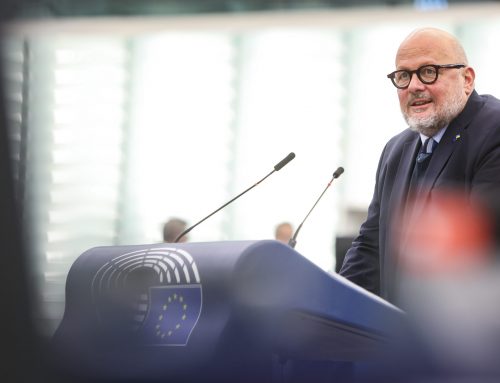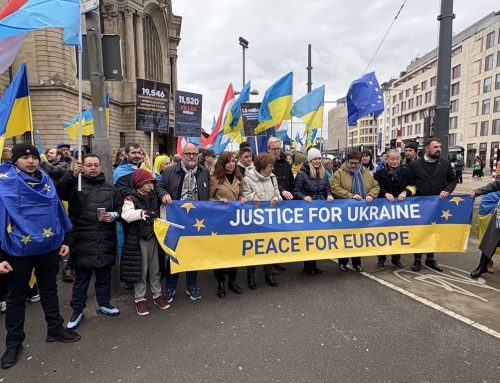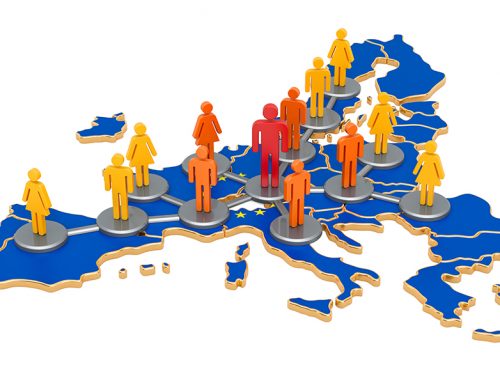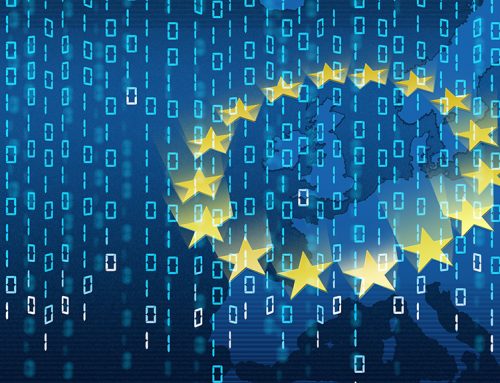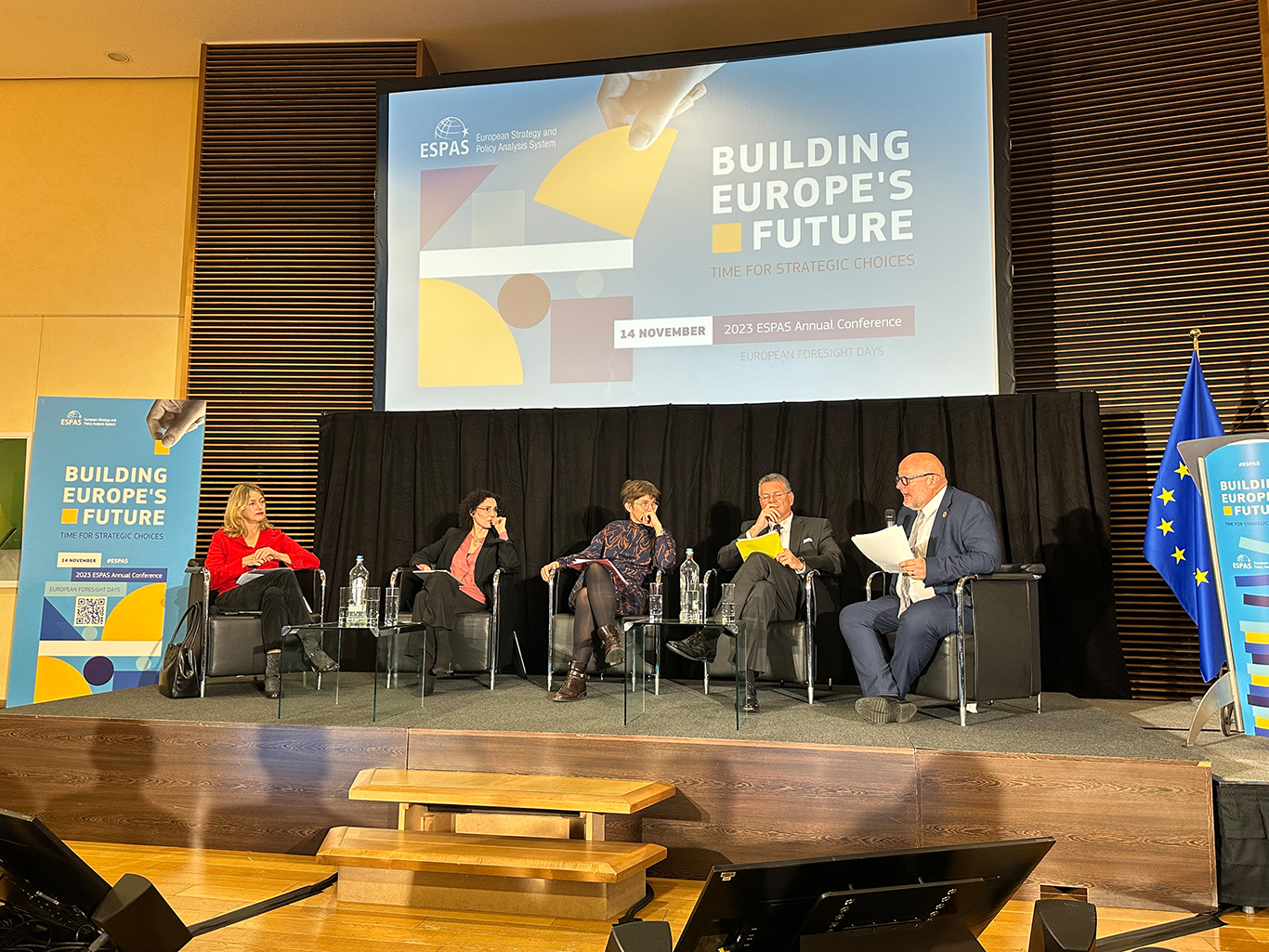
Opening remarks by Vice-President Marc Angel MEP
Dear Ministers, dear Maroš, dear Stephen, ladies and gentlemen,
It is a genuine pleasure to join Maroš in opening this year’s ESPAS annual conference. This is my first ESPAS conference – and I was delighted when President Metsola asked me earlier this year to take on responsibility for Parliament’s role in the ESPAS process. Once again, the Parliament and the Commission have worked closely together this year to produce a conference that is rich in content, and boasting a line-up of some exceptional speakers.
For over a decade now, nine EU institutions and bodies, including my own, have worked together in this collaborative foresight process. We have enhanced our understanding of the global trends impacting on us, and developed the use of foresight as a tool in policy-making, sharing our collective intelligence.
And I think we can take some pride in what has been achieved. Apart from developing the habit of working together – not always something that comes naturally in Brussels (!), I believe ESPAS has also acted as a ‘nudge’ to our member organisations – and indeed elsewhere in the Member States – to embed foresight in their day-to-day work. The presence on the platform today of two Ministers for the Future is proof of the rise in foresight practice across Europe.
Many of you here today, and indeed those of you watching online, may not need to be persuaded of the merits of anticipatory governance. To you, these are probably self-evident. But others, perhaps, remain to be convinced of foresight’s inherent value to good policy-making. Foresight is not about predicting the future. It is rather about finding ways of creating the futures we want, and avoiding those we do not want.
In the European Parliament, we have developed foresight capabilities over many years, first in the spheres of science and technology and more recently in strategic foresight. This provides the Parliament with a vehicle to effectively monitor megatrends, anticipate change, consider different policy options, put forward informed recommendations in its resolutions, as well as requesting the Commission to include future-proof policy options in its legislative proposals.
In recent months, we in the Parliament have produced two significant reports – ‘Future Shocks 2023’ and a ‘Strategic Foresight Conversation on the future of the relationship between the EU and Ukraine 2035’. Please go to our website and read them! Both of these papers are examples of where foresight and political decision-making come together.
At this conference, leading experts from across Europe and beyond have come together to debate today’s theme: “Building Europe’s Future: Time for Strategic Choices”. We are approaching the next European elections, and a new EU institutional cycle in the coming year. So, now is the perfect time to debate how the European Union might approach the challenges it faces between now and 2040. Like the rest of the world, Europe faces many challenges – war on our eastern borders, the onward march of technology, the fight against climate change, and the scourge of inequality to name just a few.
But, ladies and gentlemen, these challenges are there to be overcome. In life, you have a choice between accepting what seems inevitable, or you can explore new and creative ways of overcoming the challenges we face.
So often, governments and politicians can seem to voters to be ‘behind the curve’, running to catch up with events, and sometimes apparently unable to make things better. This is where foresight comes into its own. Few things in life are certain except, as Benjamin Franklin famously told us, death and taxes!
If we can see today where things are going wrong, and where the trends do not look good, we have it in our power to do something about it. Too often, we think that the bad trends we see in the world are incapable of being changed. Not true!
Of course, when we look ahead the challenges seem great, and at times, the hurdles perhaps seem too high to overcome. But if politicians can step outside, even for a moment, to see beyond the next few days or weeks, it is possible to imagine different futures, and indeed better ones. This won’t happen by wishing things can be better. The work to design a better future can come through using foresight thinking in smart and innovative ways.
At this conference and in the forthcoming ESPAS Global Trends Report, I hope we can help to shape the debate leading up to next year’s European elections – offering some new ideas and new perspectives. It is indeed – as the title of our conference says – ‘time for strategic choices’. Europe has what it takes to be a force for good in the world, a leader in the technologies of tomorrow, and a powerhouse in the energy transition. We can modernise our economies, we can prepare our people for the new job opportunities of tomorrow.
We can do all these things and more, and deliver for people if we can anticipate better, and prepare better.
Thank you.


